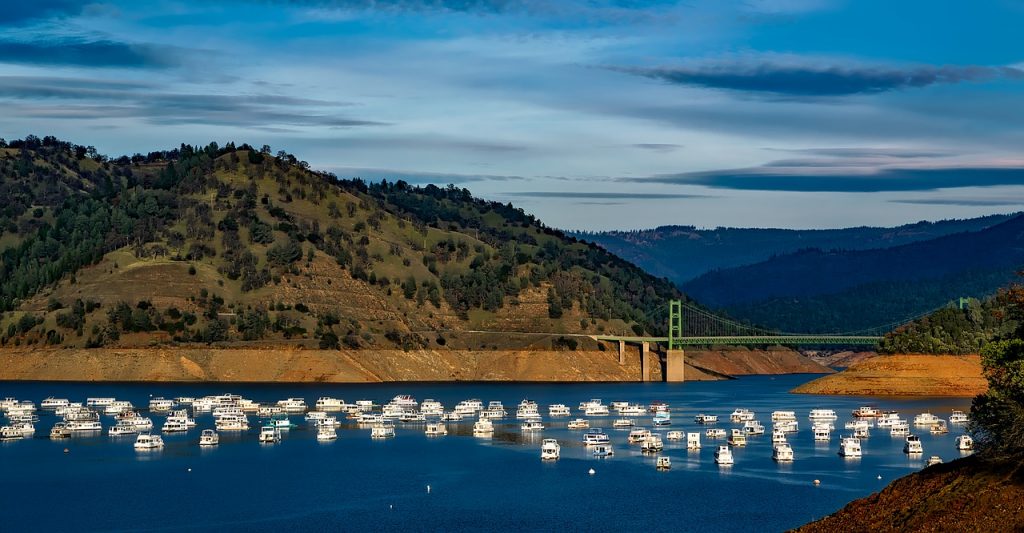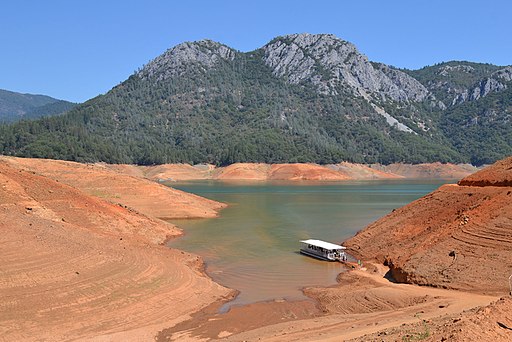Lakes Often Go Down Despite Sea Level Rise
In an era with rising sea levels, it may be surprising that as a general trend, most lake levels are going lower. By definition lakes are not connected with the oceans so their water level is independent of sea level. Lake levels can be hundreds or thousands of feet above sea level, and even far below sea level.
As a general rule, lake levels are going lower. Reasons are diverse, such as:
- As global temperatures warm, there is more evaporation.
- Warmer temperatures are changing precipitation patterns, causing abnormal droughts as well as deluge rains. Both will obviously affect lake levels.
- Water shortages and increased demand mean more pumping from the lakes themselves.
- Rivers, streams, and underground aquifers that may supply the lakes are being pumped more aggressively to satisfy the increased demand for fresh water for homes, cities, and agriculture.
- In some areas melting glaciers feed the lakes. With few exceptions glaciers are receding severely. For the time being that melting may sustain a lake, but sooner or later the disappearing glacier will have a severe impact. This will have profound effect in places as diverse as California to China, in many places, with huge impacts on irrigation for agriculture.
For example in California, the five year drought that began in 2012 was so severe that some lakes all but disappeared such as Lake Shasta shown above. Then the deluge “atmospheric river” brought record levels of rain that filled some lakes and reservoirs to dangerous overflow capacity. The general decrease in lake levels may be a few feet or tens of feet. There can be sudden changes in either direction. If the drop in lake level is only moderate the effects may not be too severe. With a couple of foot drop in water level, docks and waterfront property may be inconvenienced or visually unappealing. Severe drops in lake level will often have much more profound effects.
As my readers know, global sea level is rising and accelerating primarily due to the major ice sheets on land melting to record levels. That added water volume has no direct effect on lakes. The secondary effect on sea level is thermal expansion. As the oceans warm, they expand slightly like nearly all substances. With the oceans averaging more than two miles deep (3 km), there is enough volume to show up as measurable inches of added height. (Due to the relatively shallow depth of lakes, that effect is minimal there.) Lake levels can change much more suddenly than sea level rise, even month-to-month. Changing lake levels are another good example of the diverse effects as we enter this new climate era.


